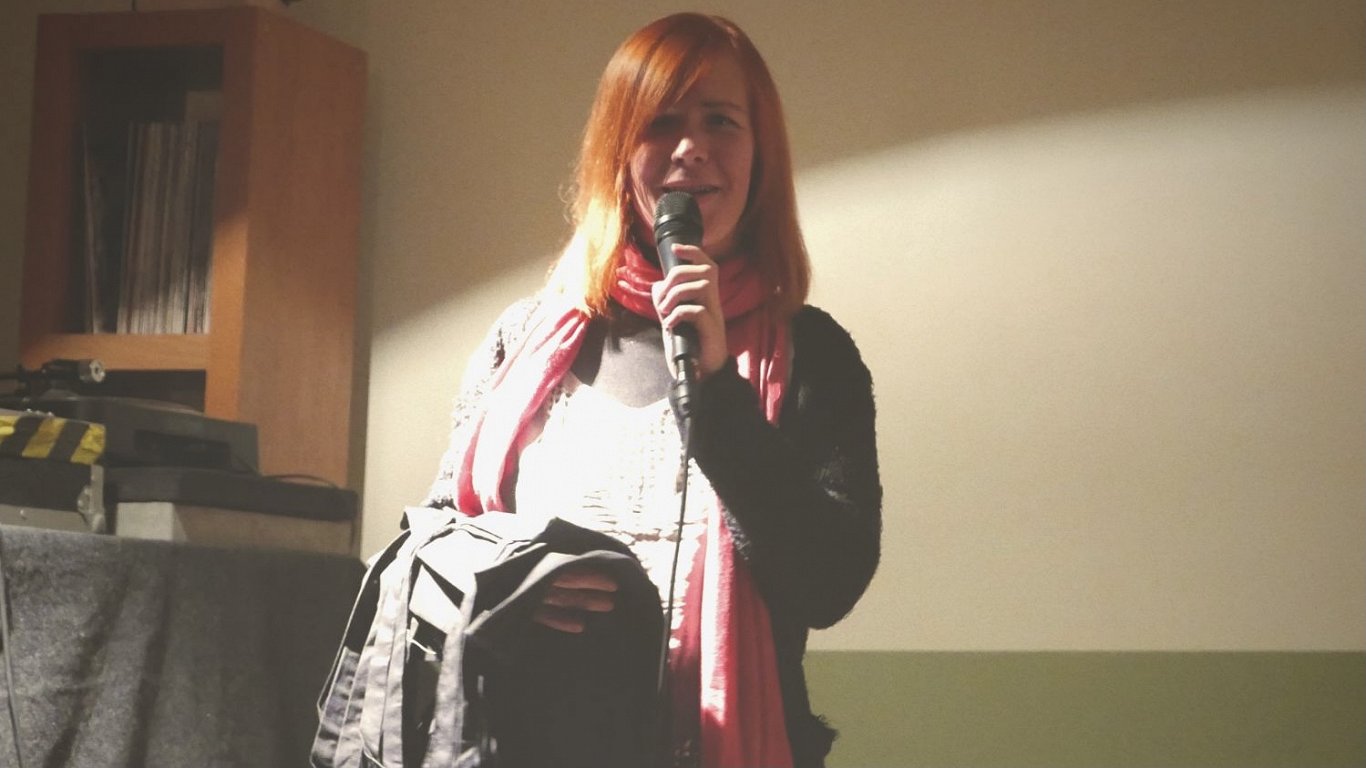The term “Prima Vista” refers to a situation in which a musician plays a score assigned to him for the first time without prior acquaintance with it, as well as one of Estonia’s largest literary festivals, which brings together both Baltic and foreign authors for the seventeenth time. The festival was opened in Tartu on September 20, and will take place for the rest of the week. .
Like any public event, the Prima Vista Festival is affected by the security measures taken to contain the pandemic – for the second year in a row, the festival has been forced to change its time from summer to autumn. However, compared to last year, when only one foreign author from Finland was able to come, this year the situation is more promising – now there are more than ten of them. The motto of the festival is “Small World”, and it is about this ideological approach that the conversation of journalist and poet Tomas Treibergs begins with the director of the festival program Māris Unts.
Marja Unta: We invented this motto already in 2008, because for each release of the festival, such a slogan helps to narrow down the idea of its program, although, on the other hand, such a short literary form can be interpreted in very different ways.
This year’s motto “Small World” means the world we have lost – various international contacts and face-to-face communication, as well as all the small worlds in which we are each trapped at the moment.
Both on computer and telephone screens and in domestic, narrow, public communities. And most importantly – in their own homes and families. This also applies to Prima Vista – last year’s program focused more on local writers, which, of course, we have done in other years as well. The pandemic has undoubtedly affected the usual format of the festival. There is no denying that it is not very easy to plan such an ambitious event without really knowing whether your intentions will be realized at all. However, we have also learned a lot from this situation, from how to use video streams to how to create other versions of a hybrid cultural event.
Tom Treibergs: The hierarchy of participants is very important for almost any festival, be it a festival of music, art or literature – in the terminology of music festivals they are the so-called “hedliners” or, more simply, the “biggest stars”. Although the worlds of music and literature each mean completely different quantitative sizes of supporters, their stars are also on the field of literary festivals. What does their engagement work mean to brighten up the festival program and make it as attractive as possible to the potential visitor?
This is usually a very long process. This year’s guest list includes several authors whose membership was transferred from the previous year to this one. The most important thing in this invitation process is an agreement – mutual, respectful understanding. In general,
foreign authors agree to visit us not least because “Prima Vista” is a European top-class festival that everyone knows about. They are interested in our city, our country and this part of the globe as such.
Of course, those authors who are also interested in our culture and literary landscape are most pleased. Either the first aspect works or the second, but in the end we come to a list of writers, poets and translators who really want to be here and share their work.
What about financial support – is it enough for a festival of this scale?
Our biggest supporters are Tartu City Council and the Estonian Cultural Capital Foundation. But just as important are our social partners, such as creative associations or individual activists, who themselves provide an event for the festival program. Cultural institutes from different countries provide important support in easing financial expenses, for example, the Finnish Cultural Institute is very active in Tartu. We have a long and very successful cooperation with the Polish Embassy, and for the theme and topicality of this year’s festival – in which we especially highlight Norwegian writers – we are happy to cooperate with the Norwegian Embassy.
For the festival For the first year in a row, events addressed to the Russian-speaking community with authors writing in their own Russian language are also important for Prima Vista; Russian writer Viktor Shenderovich also adds to the guest list of the festival. Is it a deliberate, integrative policy, or is it simply a matter of capturing the scene of existing and current literature and offering it to visitors from a linguistic point of view as well?
The section of Russian literature has been in the festival program since its inception. Jo
members of our society are also our organizers, and thus we naturally add to the festival program the languages that are relevant to our community.
We also involve professors of linguistics and researchers from the University of Tartu in this work. Every year, one of the “hedliners”, as you mentioned, is an author from Russia – several more years; and even sometimes, if no one from Russia, Belarus or Ukraine can come to us, the Russian language is represented by one of our domestic authors.
What is the public interest in the Prima Vista Literature Festival and how can its target audience best be described?
We try to reach as many different audiences as possible. The concept of the program has always planned to involve all age groups, therefore we also have programs for both children and teenagers, as well as co-creative programs, creation of creative projects. There are also events that are specifically focused on students and topics of interest to them. And then, of course, there are events that can attract all the mentioned age groups at the same time, taking into account the remaining, unmentioned age categories. Of course, we want to expand even more, especially with an international audience – both foreign students studying at the University of Tartu and lovers of literature from other countries. That is what we are working on very hard at the moment. Given the current situation, this is a particularly difficult task.
It has always been important for us to emphasize that this is not “just” the Tartu City Festival – this is one of the largest literary festivals in Estonia.
Therefore, of course, we are also very happy about the interest of our compatriots – when interested people and listeners from the farthest corners of the country come to the festival. For the time being, we can’t hope for the response of visitors I have seen at literary festivals in Latvia or Finland, but – never say never!
Is the work of organizing the festival for its creators also a main job or rather a mission that should be brought to life in addition to their daily work flow?
Unfortunately, Prima Vista has not grown to the level of a festival that can provide full-time work for its creators. The core of the festival consists of four organizations: the Tartu branch of the Estonian Writers’ Union, the Estonian Literary Society, where I work, the University of Tartu and also the city libraries. As the executive director of the Literary Society, the organization of this festival is basically in line with my direct tasks. In turn, each of the mentioned organizations has a group of organizers, say, “Prima Vista”, which plans and organizes the festival either as a part of direct tasks or as additional work. In my case, it is both.
In conclusion, a short remark – on Friday, September 24, at 6.30 pm in Tartu Lodjakoda Ship Park, writer and publicist Rvīns Varde, whose book “What Happens Here” has been translated into Estonian by Ilze Tālberga, will give a reading.
–


